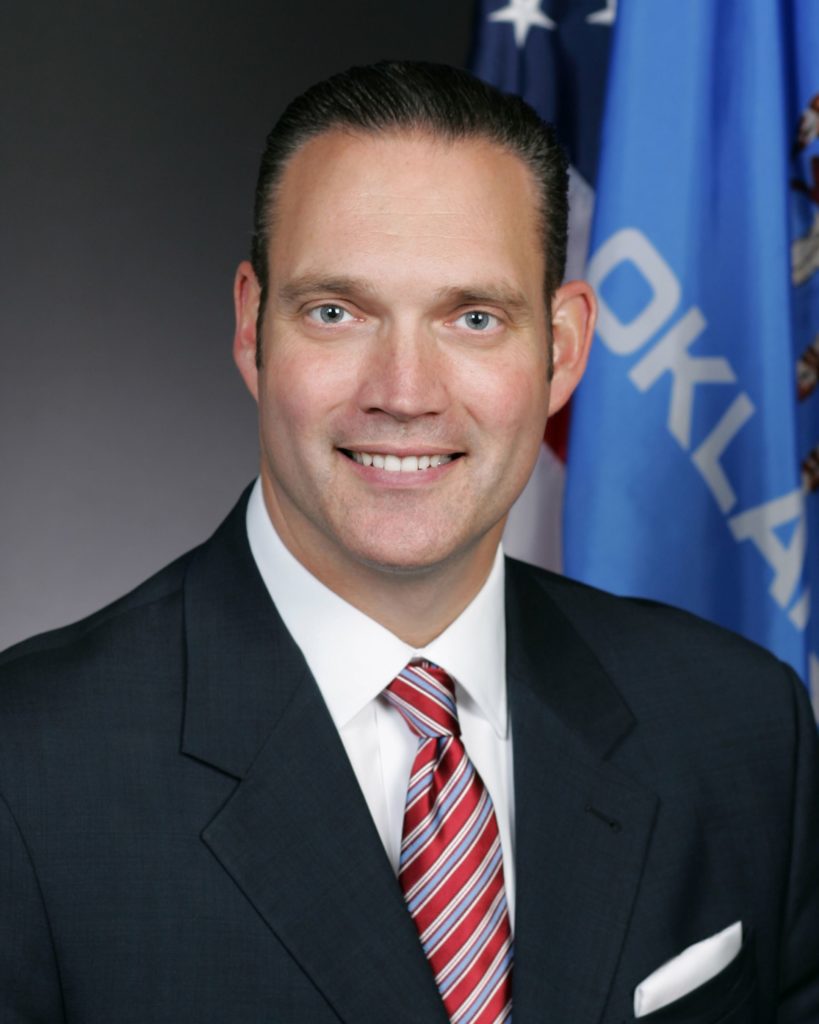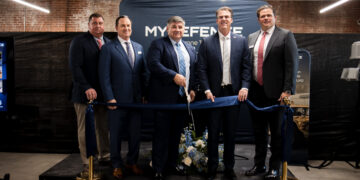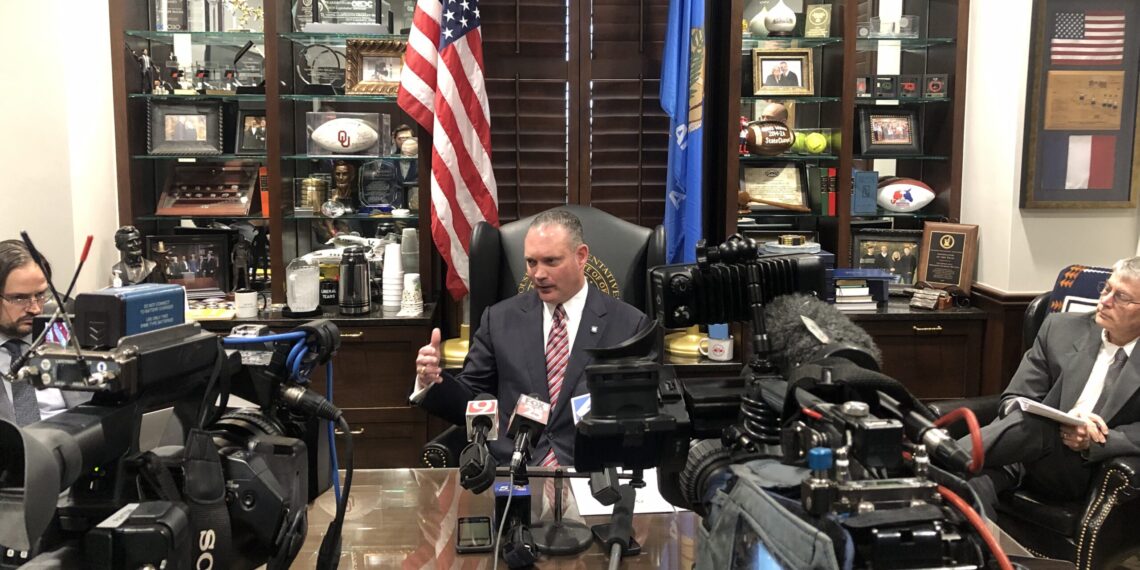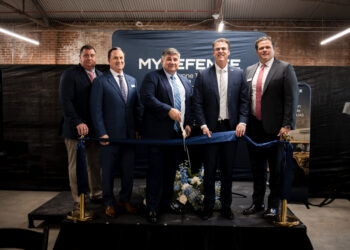OKLAHOMA CITY (OBV) – Oklahoma House of Representatives Speaker Charles McCall spoke positively about bills that aim to grow the state’s workforce through expanding high school graduation requirements and enacting childcare reform, as well as legislation that sets out to restructure the Oklahoma Department of Commerce.

McCall, R-Atoka, took time from his busy legislative session schedule on Monday to speak with members of the media about matters relating to the 59th Legislature, particularly the various bills that have been up for vote in the House.
Three key bills succeeded in the House last week: House Bill 3278, written by Rep. Rhonda Baker, R-Yukon; House Bill 3252, written by Rep. Mike Osburn, R-Edmond; and House Bill 4147, written by Rep. Suzanne Schreiber, D-Tulsa and Rep. Mark Lawson, R-Sapulpa.
Oklahoma Business Voice asked McCall about his thoughts on each bill. The House speaker spoke about how those three bills can benefit the state.
Baker’s bill creates the Graduation Act of 2024. It requires eighth through 12th grade students to complete modified graduation requirements starting in the 2025-26 school year. The modified requirements include Individualized Career and Academic Plan (ICAP) courses covering a range of subjects and career paths selected by the district’s board of education
The bill also allows a postsecondary-approved full-time Oklahoma CareerTech program or locally approved science-based application course to satisfy a required physical science unit.
The purpose of the modifications is to provide students training and education that will prepare them to enter the workforce upon graduation and start their career with the skills they will need to succeed.
“First of all, I think Rhonda Baker is a great education chair for the House of Representatives. It’s probably the toughest committee chairmanship – chairwomanship, in this case – in the state because everyone is a stakeholder in education,” McCall said. “I think Rhonda has a real passion to see workforce improve in the state of Oklahoma. She has a real passion to see education outcomes improve.”
HB 3278 will help grow the workforce and educational possibilities, McCall said.
“We’re not only working to increase a great workforce and a larger workforce, but a lot of our education policy and the things that we’ve looked at here in the last few years is expanding education opportunities for our students to give them the best environment possible for their learning styles. And because those educational outcomes are going to be so important in competing for our own economy and also competing for jobs in the future,” McCall said. “I always defer to Rhonda Baker. We would consider her a resident expert within the space of education. I think she’s got some good ideas with those pieces of legislation.”
HB 3278 passed the House with a 95-2 vote.
Osburn’s bill modernizes the Department of Commerce’s statutory duties. It modifies the Department of Commerce’s mission statement and duties and the state’s five-year economic development plan, which will be renamed the five-year infrastructure and community development plan. It would also end the Commerce Department’s tenure as Oklahoma’s official liaison agency for strategic economic development and business recruitment. The department will instead serve as a technical assistance resource for local communities seeking federal funding opportunities.
HB 3252 compliments Senate Bill 1447, which establishes the Oklahoma Office of Economic Development, Growth and Expansion (OkEDGE) and the Legislative Evaluation and Development (LEAD) Committee. If SB 1447 is signed into law, OkEDGE will be established as an entity with the Commerce Department solely focused on economic development, recruiting companies into Oklahoma and retaining businesses that are already in the state.
“Oklahoma has had some recent success in the last five-six years in companies really considering the state of Oklahoma. We’ve had some successes in bringing companies to the state. We’ve had more successes showcasing our state and what it has to offer,” McCall said. “Anytime you can bring people into public service that will give their expertise and knowledge to help move Oklahoma forward, I think that’s always a positive thing.”
Details regarding the restructuring will continue to be worked out, McCall said.
“I think Rep. Osburn’s bill has a lot of merit to it. The legislature is always going to have to approve a project if there’s going to be some type of incentive ask. But there’s got to be a mechanism that those companies and their boards can have some autonomy and anonymity until they’re ready to make a public announcement,” he said. “So, I think there are some good ideas within those restructure bills that can make that process and that interface with companies looking at Oklahoma much more seamless for them while protecting the integrity of the process on the legislative side.”
HB 3252 passed the House with a 76-3 vote.
Schreiber and Lawson’s bill offers a 30 percent tax credit to employers who share in their employees’ childcare costs with their employees. The credit is capped at $30,000 per year, per employer. It also provides a $1,000 refundable tax credit to qualified childcare workers employed in licensed facilities.
HB 4147’s purpose is to address the lack of available and affordable childcare that has plagued Oklahoma for the past several years.
McCall said as a business owner he has seen the effects the lack of childcare can have on workforce.
“It’s certainly an issue,” McCall said. “Even in my own business and company, there is a barrier to workforce. I do think childcare and finding ways to provide help to workforce with that childcare challenge would be beneficial to families, companies, and ultimately the state of Oklahoma. So, I’m hopeful we address that and find a way to help.”
Scores of working parents are impacted by what Schreiber and other childcare advocates have described as a crisis.
A U.S. Chamber of Commerce Foundation study states that 58 percent of working parents reported leaving their job because they could not find viable childcare. Also, 32 percent of women surveyed said having to be home to care for family members made returning to work difficult.
Childcare facilities have been on the decline in Oklahoma for more than a decade.
Oklahoma had more than 4,000 facilities in 2012; that number dwindled to 2,954 by 2021. Fifty-five percent of Oklahoma is categorically listed as a childcare desert.
HB 4147 passed the House with an 86-8 vote.

















